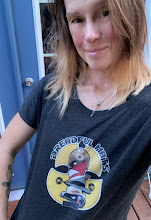 I am reading the pages of my mother’s unfinished novella, first named Slippery Crockery, then James, James, after A.A. Milne’s poem:
I am reading the pages of my mother’s unfinished novella, first named Slippery Crockery, then James, James, after A.A. Milne’s poem: James James
Morrison Morrison
Weatherby George Dupree
Took great
Weatherby George Dupree
Took great
Care of his Mother,
Though he was only three.
James James Said to his Mother,
"Mother," he said, said he;
"You must never go down
to the end of the town,
if you don't go down with me.
Though he was only three.
James James Said to his Mother,
"Mother," he said, said he;
"You must never go down
to the end of the town,
if you don't go down with me.
She writes of a family—mother, father, son, daughter—that in structure alone reminds me of her own. The story plays with who is like whom: the mother defining the two “plodding,” capable ones—herself and the older son—and the “geniuses”—the father and younger daughter. Yet the daughter and mother can repel each other like magnets: “like forces repel.” So she suggests the daughter must also be like her mother.
I think of my grandmother, who died at the age of 91 in the year 2000, whom my mother said went silent when angry and would not talk, sometimes for extended periods. I never saw this sweet, tiny woman angry, but I was not her daughter and did not know her before she was in her 60s. I read how the mother in James, James wordlessly leaves the house:
Our mother had taken to leaving us, slamming the front door and
walking, almost trotting, to the bus stop at the corner.
"J.S.O.," our father termed it. "Just stormed out." The first time
she stormed out, he said it with astonishment, but gradually it
became a simple statement of fact, like "how do you do." J.S.O.
I wonder if my grandmother ever stormed out. Now, as a mother myself, I know I threaten it sometimes. I keep promising myself that I will stop this practice, but I often want to close the door and walk down the street when my two boys go at it. Sometimes I do walk out the front door and sit on the front stoop and take a deep breath, but the boys follow me, crying, within moments. I wonder if I share a certain anger style with my grandmother. But I can certainly yell—more than I think my mother ever did and unlike the closed silence my grandmother dealt out.
This novella is not autobiographical, and it mixes parts of real people together into one. I see my stepfather in the father, as well as seeing bits of what I know of my grandfather, who died long before I was born. But is makes me think of who is like whom in families, how we label each other, take on roles.
